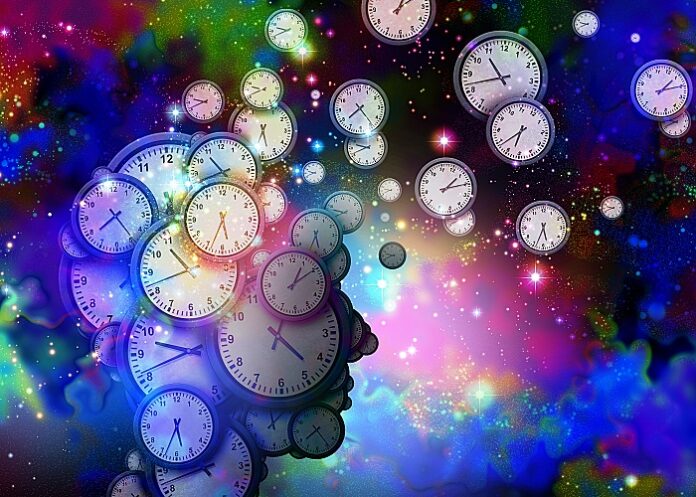Does drinking alcohol make you age faster? The answer is not straightforward, based on a study by researchers at Yale School of Medicine in the United States.
The study, published in Alcoholism – Clinical and experimental research, utilised five different epigenetic clocks, a measure of an individual’s biological age, and examined the effects of varying levels of alcohol consumption on biological age.
The results show that the clock ticks faster among heavy alcohol drinkers but slower among light to moderate drinkers, Yale reported on 15 March 2022.
“A nonlinear relationship between alcohol consumption and epigenetic age is very interesting. It suggests a complicated effect of alcohol use on health,” said Dr Ke Xu, associate professor of psychiatry and a senior author on the paper.
Five clocks derived from different tissues and different aging related factors show similar patterns.
One novel clock that is built from DNA modifications in monocytes, which was developed by Xu’s group, shows the strongest association with alcohol consumption and epigenetic age. Monocytes play an important role in inflammation and aging process.
The study was conducted in over 2,000 individuals, including both healthy participants and people living with HIV.
“Heavy alcohol drinking might change the aging clock before one develops medical disease. The finding highlights the impact of lifestyle factors on health and their importance for preventing alcohol use related medical comorbidities,” said Dr Rajita Sinha, Foundations Fund Professor of Psychiatry and Professor in the Child Study Centre and of Neuroscience, and a co-author on the study.
Dr Amy Justice, CNH Long Professor of Medicine and Professor of Public Health, commented that a biomarker of alcohol consumption, PEth, but not self-reported alcohol use, showed an association with epigenetic aging among the same people from the Veteran Aging Cohort Study.
Considering the mounting evidence of harmful effects of alcohol use, and the fact that many individuals stop drinking as they age, the effect of light to moderate drinking on epigenetic aging needs to be interpreted cautiously.
Dr Xiaoyu Liang, a former postdoctoral associate at Xu’s lab, is the lead author. Dr Bradley Aouizerat and Dr Mardge Cohen from the Women’s Interagency HIV Study also collaborated on the study.
Study details
A new monocyte epigenetic clock reveals nonlinear effects of alcohol consumption on biological aging in three independent cohorts (N = 2,242)
Xiaoyu Liang, Rajita Sinha, Amy C Justice, Mardge H Cohen, Bradley E Aouizerat and Ke Xu.
First published by Alcoholism – Clinical and experimental research, on 7 March 2022.
Abstract
Assessing the effect of alcohol consumption on biological age is essential for understanding alcohol use-related comorbidities and mortality.
Previously developed epigenetic clocks are mainly based on DNA methylation in heterogeneous cell types, which provide limited knowledge on the impacts of alcohol consumption at the individual cellular level. Evidence shows that monocytes play an important role in both alcohol-induced pathophysiology and the aging process.
In this study, we developed a novel monocyte-based DNA methylation clock (MonoDNAmAge) to assess the impact of alcohol consumption on monocyte age.
Methods
A machine learning method was applied to select a set of chronological age-associated DNA methylation CpG sites from 1202 monocyte methylomes. Pearson correlation was tested between MonoDNAmAge and chronological age in three independent cohorts (Ntotal = 2242).
Using the MonoDNAmAge clock and four established clocks (ie, HorvathDNAmAge, HannumDNAmAge, PhenoDNAmAge, GrimDNAmAge), we then evaluated the effect of alcohol consumption on epigenetic aging in the three cohorts [ie, Yale Stress Center Community Study (YSCCS), Veteran Aging Cohort Study (VACS), Women's Interagency HIV Study (WIHS)] using linear and quadratic models.
Results
The MonoDNAmAge, comprised of 186 CpG sites, was moderately to strongly correlated with chronological age in the three cohorts (r = 0.90, p = 3.12E−181 in YSCCS; r = 0.54, p = 1.75E−96 in VACS; r = 0.66, p = 1.50E−60 in WIHS).
More importantly, we found a nonlinear association between MonoDNAmAge and alcohol consumption (pmodel = 4.55E−08, 𝑝𝑥2px2 = 7.80E−08 in YSCCS; pmodel = 1.85E−02, 𝑝𝑥2px2 = 3.46E−02 in VACS). Heavy alcohol consumption increased EAAMonoDNAmAge up to 1.60 years while light alcohol consumption decreased EAAMonoDNAmAge up to 2.66 years.
These results were corroborated by the four established epigenetic clocks (i.e., HorvathDNAmAge, HannumDNAmAge, PhenoDNAmAge, GrimDNAmAge).
Conclusions
The results suggest a nonlinear relationship between alcohol consumption and its effects on epigenetic age. Considering adverse effects of alcohol consumption on health, nonlinear effects of alcohol use should be interpreted with caution. The findings, for the first time, highlight the complex effects of alcohol consumption on biological aging.
Yale School of Medicine story – Alcohol Consumption Changes the Aging Clock (Open access)
See also from the MedicalBrief archives
Cutting back on final drink of day ‘could improve brain health’
Heavy drinking and smoking linked to visible ageing
UK-China genetic study confirms that alcohol is a direct cause of cancer
Too little treatment for people with alcohol use disorder – Global survey

